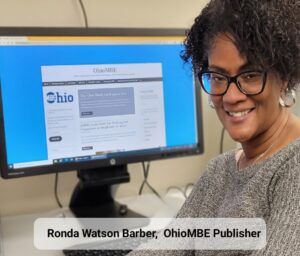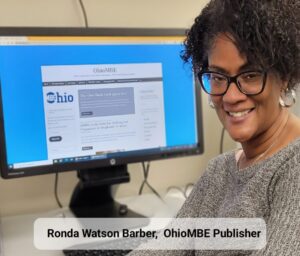
By Ronda Watson Barber
OhioMBE Publisher
I just watched tonight’s Columbus City School Board Meeting, and it was indeed refreshing to see the elected body delve into discussions about purchasing processes. It’s always encouraging to witness our leaders ask pertinent questions and seek to improve the LEDE program and policies impacting local vendors. The local branch of the NAACP once again raised important concerns about tax dollars not being spent locally, emphasizing the need for community-focused financial decisions.
My take on the meeting is nuanced, particularly concerning the superintendent’s response to inquiries. Despite being inexperienced, the superintendent was notably defensive when questions were directed at her Operations team from the Board. Publicly defending what seemed like incompetence might not be the best strategy, hinting at a possible alignment of perspectives—maybe birds of a feather do indeed flock together. The presentation from Operations was was a hot mess.
The COO’s contribution to the discussion was, frankly, a word salad. His responses to questions, especially regarding whether inclusion goals were met, were incoherent and lacking in substance. The numbers he reported to the board, are not the numbers the district forwarded to me. Some of his statements were incorrect including the timeframe for bidding a project. This performance does little to inspire confidence in his advice or justify his position, especially considering the high expectations tied to his role and salary.
The director of Capital Improvements appeared insincere. I don’t believe his committment to providing opportunities to Black LEDE vendors. Doubts arise regarding his commitment to fostering opportunities for Black LEDE vendors. Sources suggest he avoids advertising contracting opportunities in OhioMBE, attributing it to being labeled “mean and nasty.” His behavior suggests a sense of ownership over CCS funds, contradicting the district’s inclusion program. My continued question is how is CCS reaching Black owned businesses? How is Capital Improvements being intentional on communicating with those footing the tax bill about contracting opportunities?
I found it concerning when board member Cole and the administration repeatedly justified bypassing competitive bids, citing “quality” concerns and favoring the state’s cooperative purchasing program. This reasoning indirectly casts doubt on the quality of work local vendors can offer, which is troubling.
Overall, while it was good to see the board’s engagement with these critical issues, the meeting left me with concerns about the administration’s approach to inclusivity, local vendor participation, and the overarching decision-making process. It underscores the necessity for new advisors who can offer fresh perspectives and drive meaningful improvements in the district’s policies and practices.
Just my thoughts…rwb
